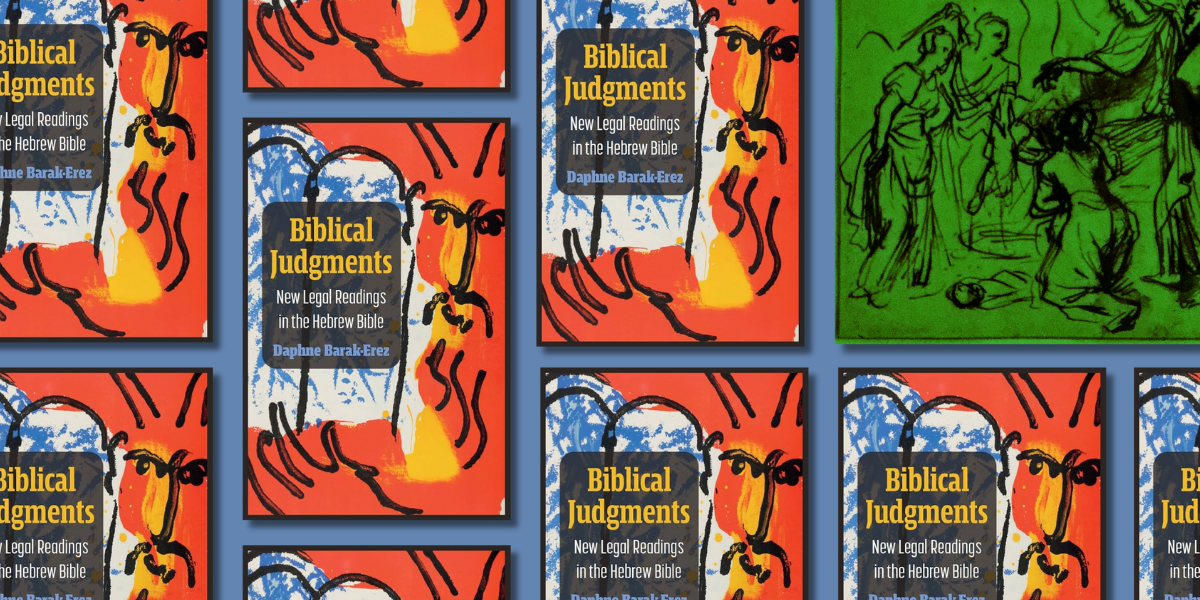Books
‘Biblical Judgments: New Legal Readings in the Hebrew Bible’

Biblical Judgments: New Legal Readings in the Hebrew Bible
By Daphne Barak-Erez (University of Michigan Press)
Israel’s Declaration of Independence calls the Hebrew Bible, or the Tanach, “the eternal Book of Books” because of its singular impact on Jews and Western Civilization.
Israeli Supreme Court Justice Daphne Barak-Erez in Biblical Judgments mines her extensive knowledge of that “Book of Books” as well as her experiences as a jurist, a professor of law and a dean of Tel Aviv University to offer starting points for discussions on the Tanach regardless of prior Jewish knowledge.
This is a book that exceeds all expectations. Organized into six sections covering themes such as “Law and Government,” “Judges and Judging” and “Criminal Law,” Biblical Judgments explores broad legal topics through various biblical episodes.
To offer an example: In the Solomonic Solution, two women claim to be the mother of a newborn. With no witnesses or objective evidence, King Solomon proposes cutting the baby in half to resolve the claims. One woman offers to abandon her claim to save the infant; the other agrees to the death so neither will have the child. Solomon then declares the true mother to be the one who wants the infant to live.
In “Judges and Judging,” Barak-Erez takes issue with Solomon’s process. Is it fair to use the threat of death and the real mother’s reactive fear to resolve the question of maternity? This story, she notes, “raises seminal questions that confront every legal system: What is more important—a fair process or a just outcome?”
In the “Criminal Law” section, she discusses the obligation and limits of obedience to a legal system. Exodus describes how midwives under the Egyptian government refused to obey an order to commit an ”immoral act”—kill all Hebrew males at birth.
“Every legal system is premised on the obligation to obey the law,” Barak-Erez notes. Yet what about orders and laws that negate “basic precepts of morality and humanity,” she writes, referencing more modern cases and trials that address this issue, including the Nuremberg trials and the American military courts that investigated the My Lai massacre during the Vietnam War.
My advice is not to read the book in the order it is printed. Rather, jump around, choose a topic and discuss. And go back again and again. Not only will you be engaged, but you will also develop your own technique for mining biblical text for challenging topics.
I would have liked to see an index that lists all the biblical stories Barak-Erez explores in the order they appear in the Tanach, with the page numbers where she elaborates on them. But even without such an index, the book is accessible and serves a profound purpose—making the Hebrew Bible a font of ethical and moral knowledge.
David Epstein










 Facebook
Facebook Instagram
Instagram Twitter
Twitter
Paul Spreiregen says
A most intriguing review. I wish, however, that the reviewer had more space to write a lengthier review with more examples. The examples he cited served to heighten curiosity over a broad and compelling subject.